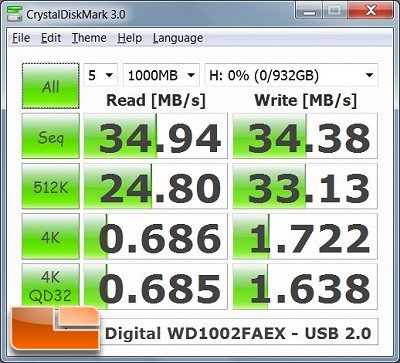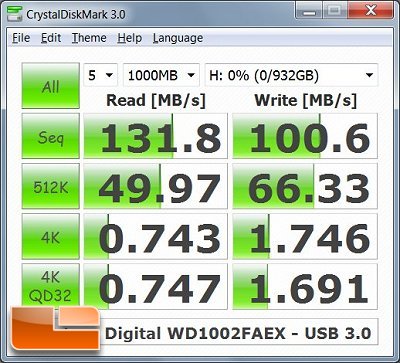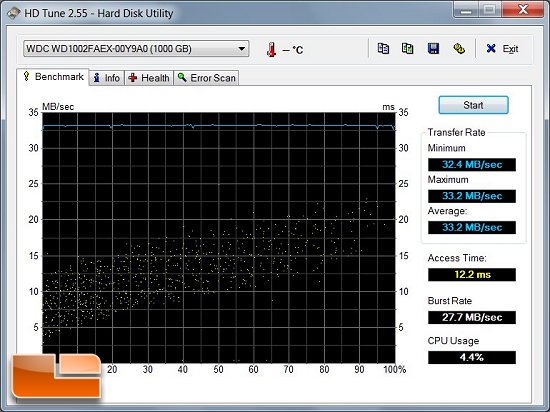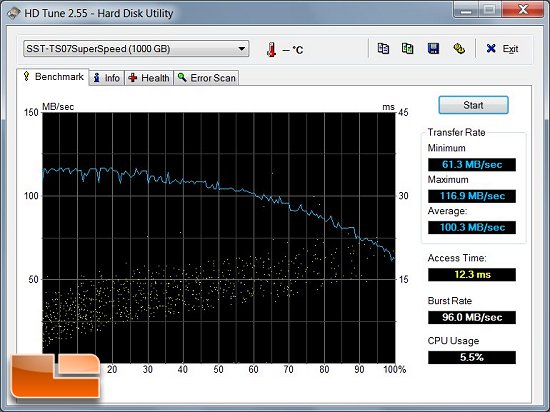SilverStone SST-EC03B USB 3.0 PCI Express Card Review
Benchmarking of the SilverStone SST-EC03B
CrystalDiskMark
CrystalDiskMark is a program which allows enthusiasts to get a closer look at their sequential and random read/write speeds of their storage devices. We’ll do a side-by-side comparison of USB 2.0 and USB 3.0 performance using the SST-EC03B as the interface for both tests.
1000MB Files Test – USB 2.0 Benchmark of the SST-EC03B using the WD1002FAEX:

This is pretty standard fare when it comes to the USB 2.0 specification. Fast storage devices have the ability to (over) saturate the throughput offered by USB 2.0 as sequential read and writes top out at just over 34MB/s.
1000MB Files Test – USB 3.0 Benchmark of the SST-EC03B using the WD1002FAEX:

On the other hand, when it comes to the SuperSpeed USB 3.0 specification, the difference between USB 2.0 and USB 3.0 is night and day. The additional throughput offered by USB 3.0 nearly quadrupled our sequential read and write results, at 131MB/s and 100MB/s, respectively.
HD Tune
HD Tune is a program which gives enthusiasts a graphical representation of the minimum, maximum and average transfer speeds of their storage devices. We’ll do a side-by-side comparison of USB 2.0 and USB 3.0 performance using the SST-EC03B as the interface for both tests.
USB 2.0 Benchmark of the SST-EC03B using the WD1002FAEX:

The flat line in this benchmark is indicative that the USB 2.0 specification is being completely saturated by our WD1002FAEX hard drive connected to the SST-EC03B. With no appreciable dip in performance, our 1TB hard drive spits out a paltry burst rate of just 27MB/s.
USB 3.0 Benchmark of the SST-EC03B using the WD1002FAEX:

Switch over to USB 3.0 and the story is much different. We can immediately see that our hard drive is not able to saturate the USB 3.0 specification completely, and as the read/write arm within the hard drive moves further away from the center of the spindle, performance begins to drop significantly as a result.
This is not the fault of the SST-EC03B, however, as it reports an extremely respectable 116MB/s transfer rate and a much improved 96MB/s burst rate. It is important to note that using high performing SSDs with the SST-EC03B will drastically improve USB 3.0 performance, as SSDs have the ability to really take advantage of what the SilverStone SST-EC03B has to offer.
With testing completed, the benchmarks reveal that the USB 3.0 specification is well suited for today’s and tomorrow’s storage devices. Even when using mechanical hard drives, the tremendous performance difference between USB 2.0 and USB 3.0 is more than enough to warrant the use of the SST-EC03B for increased storage device performance and transfer rates.

Comments are closed.